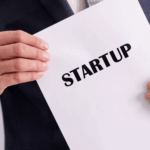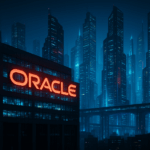Elon Musk is once again at odds with Apple (NASDAQ:AAPL), this time over the perceived prioritization of OpenAI in Apple’s App Store rankings. Musk alleges that Apple is creating an environment that disadvantages other AI firms, such as his own company, xAI. The situation persists in a climate of ongoing legal disputes for Apple regarding its App Store policies. As debates around technological dominance grow, the friction between established tech giants and emerging AI firms highlights critical questions in the industry regarding fair competition and antitrust issues.
During past interactions between Musk and Apple, tensions were palpable when Apple announced its integration of ChatGPT, prompting Musk to threaten banning the use of Apple devices within his companies. This historical context underscores a pattern of competitive friction, hinting at deeper issues between Musk’s technological enterprises and Apple’s market strategies. Recent developments build on this uneasy relationship, exacerbating disputes over fairness and market practices.
Will xAI Make a Breakthrough in the App Store?
Apple’s current App Store rankings position Musk’s xAI chatbot, Grok, at number six, whereas OpenAI’s ChatGPT holds the top spot. Musk alleges unfair practices and asserts,
“Apple is behaving in a manner that makes it impossible for any AI company besides OpenAI to reach #1 in the App Store.”
He emphasizes plans for legal action, aiming to counter what he views as anticompetitive conduct by Apple. This situation raises pivotal discussions about app ranking algorithms and the transparency of tech giants in fostering or stifacing competition.
How Is Apple’s Relationship with Other Tech Powers Shaping Up?
Apple has experienced legal challenges over its App Store operations, significantly with Epic Games, which questioned the company’s policies on developer commissions. Earlier this year, a federal judge highlighted issues of compliance with existing regulations, marking potential criminal inquiry risks for Apple. Elements of these cases provide context affecting Apple’s broader interaction with tech developers, such as Musk’s company, contributing to ongoing discussions about fairness and market practices.
In April, Apple faced a substantial fine by the European Commission for hindering developers from directing users towards alternatives outside its ecosystem. These regulatory pressures spotlight global scrutiny over Apple’s market control and highlight success in challenging Apple’s power, as seen with companies like Spotify and Netflix (NASDAQ:NFLX). This broader narrative assists in contextualizing Musk’s recent claims and actions.
Musk’s consideration of legal action against Apple adds another layer to the debate over competitive ethics in the tech industry. The outcome of potential legal proceedings could impact not only Musk and Apple but also set a precedent influencing the operational freedoms of tech developers worldwide. This raises relevant questions about platforms’ power and their accountability towards users and developers.
The industry remains divided over these issues, with stakeholders advocating for balanced market approaches. As technology evolves, these events highlight the importance of scrutinizing corporate giants’ market behaviors, particularly as emerging technologies transform peoples’ everyday lives. Ensuring fair and competitive practices will likely remain integral discussions in the tech sector landscape.










